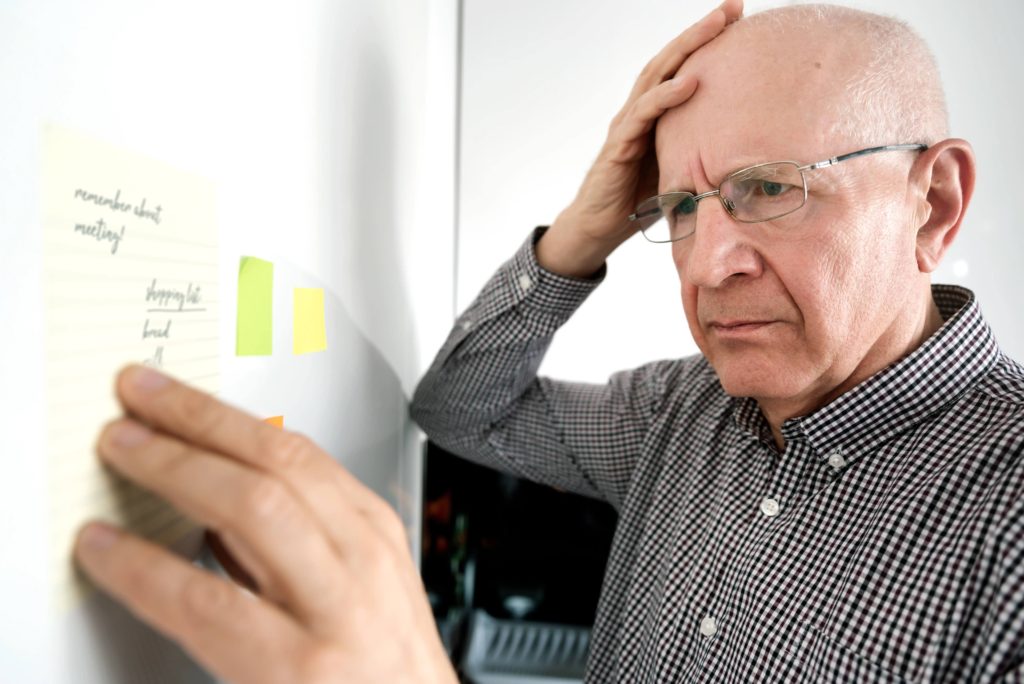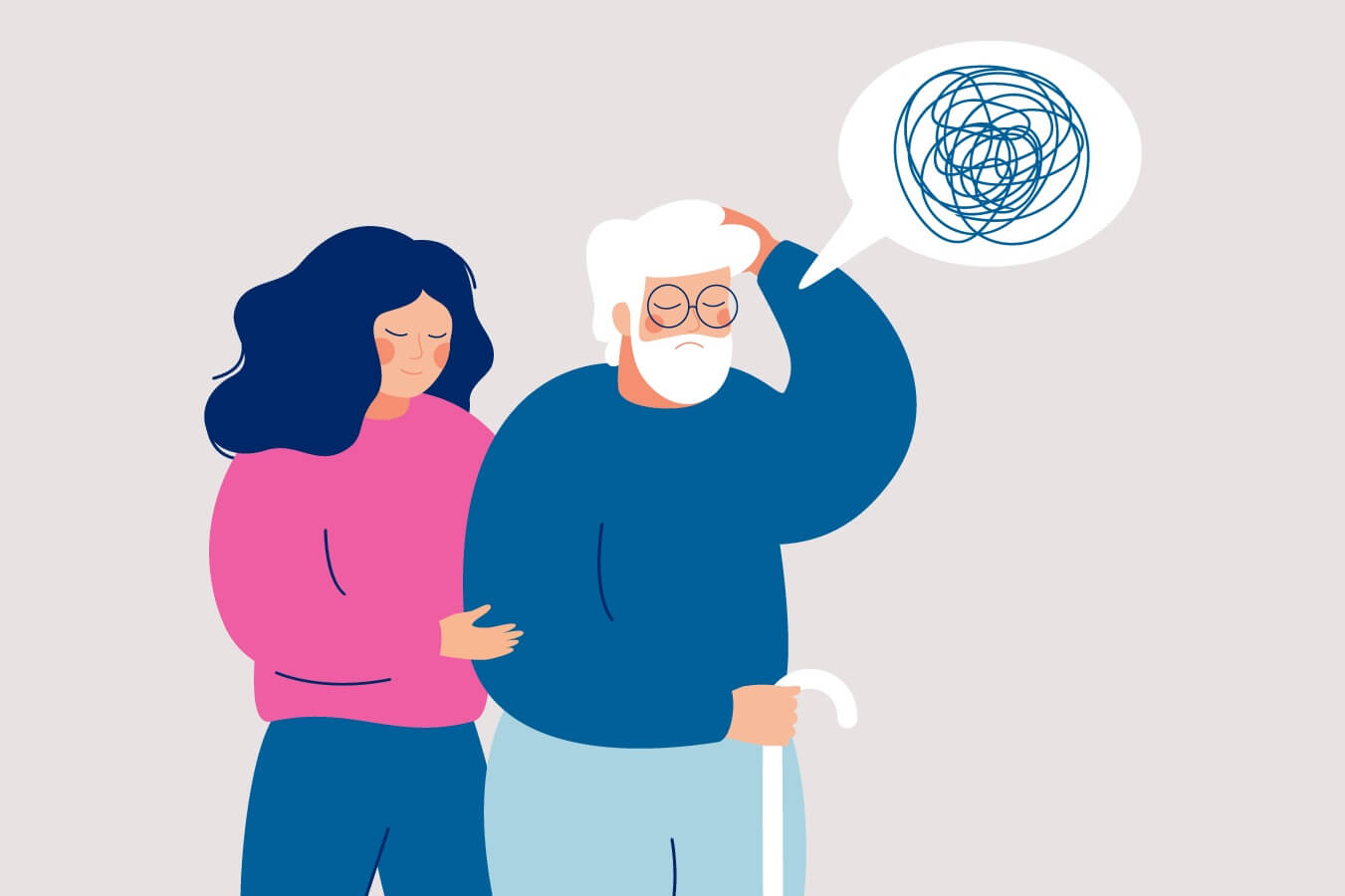Different Types of Dementia
Dementia has the potential to significantly decrease your aging parent’s quality of life. Dementia makes it difficult or even impossible to live autonomously. However, senior citizens and even those who have not reached their golden years have the potential to suffer from different types of dementia. The type of dementia that saddles your parent or grandparent requires distinct treatment and attention from a doctor as well as a home care services provider.
There are five common types of dementia. Vascular dementia is that resulting from conditions that compromise blood vessels within the brain, interrupting the movement of oxygen and blood to the brain. Lewy body dementia is that resulting form abnormal protein deposits in the brain. These protein deposits are referred to as Lewy bodies.
Frontotemporal dementia is a fairly uncommon form of dementia that occurs in individuals younger than the age of 60. This type of dementia typically results from an excessive buildup of the proteins referred to as TDP-43 and tau. Alzheimer’s disease is by far the most common type of dementia in older individuals. Alzheimer’s disease stems from alterations in the brain including the accumulation of proteins such as tau tangles and amyloid plaques.
Older individuals also have the potential to suffer from mixed dementia. This form of dementia is the result of two or even more different types of dementia setting in at the same time. As an example, a common type of mixed dementia is the onset of vascular dementia in unison with Alzheimer’s disease.
What Causes Dementia?
Dementia can be caused by several different biological alterations. The unique cause of your loved one’s dementia might be quite different from that of your neighbor’s parent and so on. The specific types of brain alterations that occur ultimately determine which type of dementia arises.
Research has determined alterations within the brain are tied to specific types of dementia yet the underlying causes of the alterations cannot always be identified. In some cases, rare genetic mutations have the potential to lead to dementia. However, such mutations are uncommon.
What are the Symptoms of Dementia?
Dementia signs and symptoms are the result of the nerve cells and neurons within the brain that were previously healthy no longer working, losing their connections with brain cells and no longer functioning. Though the loss of neurons is perfectly normal throughout the aging process, individuals with dementia suffer a more significant loss. The symptoms of dementia range from repeating questions to taking longer to complete tasks, using unusual words in place of commonly-used words, getting lost in familiar surroundings and general memory loss.
Confusion, poor judgment, difficulty speaking and difficulty writing/reading are also common dementia symptoms. Some dementia sufferers also lose their balance, struggle with movement, do not care about others’ feelings, act impulsively, feel paranoid and even hallucinate.
Around half of those with Parkinson’s disease will suffer mild cognitive impairment. Parkinson’s symptoms include hand tremors, loss of balance, delayed movement and stiffness.

Is there Treatment for Dementia?
Though there are some treatment modalities available for dementia, there is no cure. As an example, the treatment modality of aducanumab, also known as Aduhelm, helps to remove amyloid from the brain that causes Alzheimer’s disease, helping to dissipate functional and cognitive decline.
Other treatments are also available to slow the onset of dementia symptoms. Furthermore, it will also help to have an in-home care provider available to provide assistance with reminders, guidance and oversight.
How is Dementia Diagnosed?
Dementia is diagnosed by a doctor who performs a thorough review of the patient’s medical history. The doctor conducts a physical exam, runs lab tests and assesses alterations in thinking. Though there is the potential for dementia types to overlap, most doctors have a general idea of the type of dementia suffered by each patient. If you suspect the senior citizen you love might have dementia, do not hesitate to schedule an appointment with his or her doctor for an evaluation.
What Age Does Dementia Start?
Dementia typically sets in in the 60s or later. However, there is the potential for young-onset dementia that occurs before the age of 65. It is even possible for dementia to begin as early as age 30. However, for the most part, the vast majority of individuals who are diagnosed with dementia tend to be retired, meaning they are in theirs 60s, 70s, 80s or older.
How do you Care for Someone with Dementia?
You might not be able to provide the entirety of care necessary for a family member with dementia. There is no shame in obtaining assistance from an outside medical professional who provides in-home care assistance. Caring for an individual with dementia requires holding regular conversations, dressing him or her, helping to manage behavior and encouraging daily activities that stimulate the mind and body.
Some dementia sufferers need reassurance in regard to common items in the house and daily activities. An at-home care provider will provide such assistance. However, you can also do some things on your own to help keep the senior you love so much oriented and as mentally sound as possible. The senior in your life suffering from dementia might need assistance with personal bathing, dressing, household chores, remembering to eat, remembering to do the dishes and even understanding something as simple as the time of the day.
As an example, something as simple as placing a clock that is dementia-friendly by the bed will help your loved one determine if it is day or night. Above all, the dementia sufferer should be provided with an opportunity for physical activity, socialization through conversation and regular reminders.
If you are wondering, “Can dementia kill you?”, you should know it is possible. Merely one misstep resulting from dementia can lead to an accident that takes the life of your loved one. Even forgetting to take medication has the potential to result in the loss of life. If you observe the sudden worsening of dementia symptoms, do not hesitate to reach out to a medical professional for assistance including a dementia diagnosis. Above all, be willing to ask for assistance from an in-home care provider.


